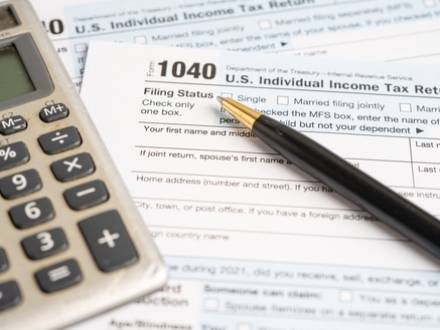Will the Tax Cuts and Jobs Act Be Extended?
 In 2017, during Donald Trump’s first presidential term, Congress passed the Tax Cuts and Jobs Act (TCJA), which put in place a number of significant changes that affected both individual taxpayers and businesses. However many of the provisions in this law were temporary, and they are set to expire at the end of 2025. Congress is now considering whether a new law may be passed to extend some of the terms or make other changes to tax laws. In order to do so, Congress will likely need to make large cuts to the government’s budget, so the ultimate decisions that will be made are uncertain.
In 2017, during Donald Trump’s first presidential term, Congress passed the Tax Cuts and Jobs Act (TCJA), which put in place a number of significant changes that affected both individual taxpayers and businesses. However many of the provisions in this law were temporary, and they are set to expire at the end of 2025. Congress is now considering whether a new law may be passed to extend some of the terms or make other changes to tax laws. In order to do so, Congress will likely need to make large cuts to the government’s budget, so the ultimate decisions that will be made are uncertain.
Since the path that Congress will take is currently unknown, many taxpayers are facing uncertainty about whether their taxes may increase, whether certain tax credits or deductions will be available, and what they can do to minimize their tax burdens. Because of this uncertainty, it is more important than ever to work with a skilled attorney to address tax-related issues and determine the best course of action.
Tax-Related Concerns That Congress Will Need to Address
A plan proposed by Republicans in the House of Representatives would include around $4.5 trillion in tax cuts, as well as around $1.5 trillion in spending cuts. The Senate is currently considering this plan and is likely to put forth its own proposals. Some of the issues related to the TCJA that will need to be addressed include:
-
Corporate Tax Rates: The TCJA lowered the corporate tax rate to 21%, and this is a part of the law that does not expire on December 31, 2025. However, Congress may choose to increase the corporate tax rate in order to offset some other tax cuts.
-
Pass-Through Tax Deductions: For businesses that are classified as pass-through entities, including LLCs and S-corporations, the TCJA allows for a 20% deduction on qualified business income. This deduction is set to expire on December 31, 2025, but because it benefits many small and mid-size businesses, Congress may choose to extend it.
-
Business Interest Deductions: Prior to the passage of the TCJA, businesses were generally allowed to deduct business interest expenses. The TCJA placed some limitations on these deductions based on a taxpayer’s business interest income and adjusted taxable income (ATI). After December 31, 2025, these limitations may no longer apply.
-
Individual Tax Rates: While the tax rates for individual taxpayers were reduced by the TCJA, they will revert to their previous levels after December 31, 2025 if Congress does not take action.
-
Standard Deductions: The TCJA increased the standard deduction that may be claimed by individual taxpayers or married couples who file jointly. After 2025, these deductions will revert to their previous levels with adjustments for inflation. For the tax year of 2025, the standard deduction is $14,600 for individuals or $29,200 for married couples. If Congress does not take action, the standard deduction for 2026 will be $8,300 for individuals or $16,600 for married couples.
-
Deductions for Mortgage Interest and Charitable Contributions: Under the TCJA, mortgage interest deductions could be claimed on property valued at $750,000 or less. After the TCJA expires, this limit will be increased to $1 million. The TCJA allows taxpayers to claim deductions for charitable contributions totaling 60% of their adjusted gross income, but after it expires, this will be reduced to 50%.
-
State and Local Taxes: The TCJA placed a $10,000 cap on state and local tax (SALT) deductions. After the TCJA expires, this limit may be removed, although other taxes, such as the Alternative Minimum Tax, may apply for wealthy taxpayers who are seeking to reduce their tax obligations.
-
Estate Taxes: The TCJA significantly increased the amount of a person’s estate that is exempt from estate taxes. In 2025, the exemption is $13.99 million. If the TCJA is allowed to expire, the exemption will revert to previous levels, which would be around $5 million.
-
Child Tax Credit: The TCJA increased the child tax credit from $1,000 to $2,000. If this provision is not extended, the credit will revert to its previous level after 2025.
Contact Our San Jose, CA Tax Lawyer
With so many changes to tax laws that may go into effect within the next year, taxpayers will need to understand how they may be affected. Adjustments to tax rates, deductions, and other factors could lead to disputes with the IRS or situations where taxpayers owe more taxes than expected. At John D. Teter Law Offices, our San Jose tax law attorney can provide legal assistance to help taxpayers address these issues, advocating for solutions that will help minimize the tax burdens for our clients. To arrange a consultation and get legal help with tax-related matters, contact us at 408-866-1810.









